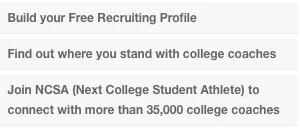Not Even Gene Marsh Has Answer for the NCAA
Gene Marsh has a long and distinguished career in the area of NCAA enforcement. Marsh was Alabama’s faculty athletics representative during the Albert Means case. His performance there got him a spot on the Committee on Infractions. And now he’s back in front of the COI regularly defending schools faced with major violations. A process Marsh spoke to Brad Wolverton about in the light of the NCAA’s missteps with the Miami investigation:
Mr. Marsh emphasizes that he has worked with many accomplished enforcement representatives, but says he is troubled by some staffers’ presumptions about the guilt of people they investigate, and by the lack of experience that some have on the job.
“They’re intense, they’re gritting their teeth, you can just feel how supremely sure they are that the person they are dealing with is a crook,” he says. “Some of these young enforcement reps have already picked out the spot on their den wall and put a nail in the stud where they’re going to hang the head of your client.”
Like many, Gene Marsh wants more experienced investigators, ones who “accept the limit of their reach.” But the big question continues to be what investigators should be experienced in. In light of the Miami case, it would be foolish to load the enforcement staff up with criminal investigators, used to having the full powers of a government agency behind them.
The membership continues to expand the reach of what the enforcement staff and related departments must control. In addition to classic NCAA issues like extra benefits, NCAA staff now must enforce rules about which classes high school students take. Or attempt to fit into NCAA rules a youth sports system totally unconnected to the American tradition of scholastic athletics. All the while the membership fights tooth and nail to ensure the NCAA continues to worry about things like the frequency of phone calls and the size of media guides.
Marsh’s complaint about prejudging of cases could be solved by making sure that no enforcement staff member starts or works exclusively in enforcement. Departments like Academic and Membership Affairs, SLR Waivers, Student-Athlete Reinstatement, and some divisions of the Eligibility Center could all breed a type of empathy for coaches, campus administrators, and athletes. Perhaps a rotation in one or more of these areas might give investigators a more realistic picture of the reasoning and motivation of the people they are investigating.
But when it comes to oversight, Gene Marsh comes up short:
Mr. Marsh says he doesn’t have any big ideas for fixing enforcement flaws. Mark Emmert, the NCAA’s president, has proposed an oversight body that would watch over investigators, and has called for a more thorough examination of the process. Others say an outside group should take over.
In theory, it should be the job of the Committee on Infractions to perform this oversight. In individual cases, the COI should be picking over the evidence. And as a membership group focused on the enforcement process, the COI should push for the policies and procedures necessary to balance protecting the membership both from the national office and from each other.
That Marsh had no opinion on the Committee on Infractions as an oversight body is telling. Perhaps a more powerful and active COI with clearer roles and guidelines is the answer, but given the secretive nature of the committee, only its former members can speak to whether that would be a good idea. If they cannot come up with ideas, that does not bode well for anyone else.


